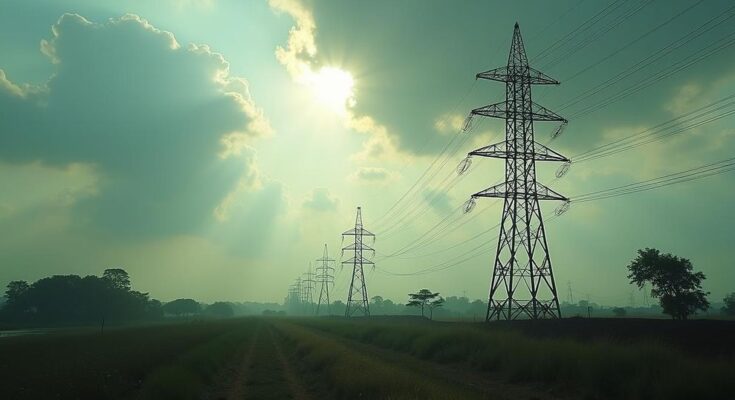International electricity customers in Benin and Togo owe Nigeria $5.79 million for Q2 2024 services, according to a report by the NERC. Out of $15.60 million invoiced, only $9.81 million was paid. The report reveals improvements in payment trends and a significant reduction in government electricity subsidies, along with a collection efficiency increase among distribution companies.
The Nigerian Electricity Regulatory Commission (NERC) reported on Sunday that international electricity customers from Benin Republic and Togo have accumulated an electricity debt of $5.79 million for the energy consumed during the second quarter of 2024. According to the latest report, $15.60 million was invoiced by the market operator to these customers for the period spanning April to June; however, only $9.81 million was remitted by the international clients. Specifically, the companies involved include Para-SBEE and Transcorp-SBEE in Benin, as well as Mainstream-NIGELEC and Odukpani-CEET in Togo. Para-SBEE managed to remit 71.21% of the $4.29 million billed, while Transcorp-SBEE fully paid its invoice of $4.25 million. Conversely, Mainstream-NIGELEC paid 69.72% of the $3.59 million due, and Odukpani-CEET made no remittances during this period. It is noteworthy that in the preceding quarter, no payments were made by these international customers against a cumulative invoice of $14.19 million issued by the market operator. The second-quarter report did indicate, however, that some bilateral customers had begun making payments on outstanding invoices from earlier quarters. Cumulatively, international bilateral customers settled $16.65 million towards previous invoices, with Transcorp-SBEE and Mainstream-NIGELEC paying off all outstanding amounts from prior quarters. As summarized in the report, the four international customers collectively paid $9.81 million against the cumulative invoice of $15.60 million, resulting in a remittance performance rate of 62.88%. In a parallel assessment, domestic bilateral customers made payments totaling N1.30 billion against the N1.99 billion invoiced for the same quarter, representing a 65.07% remittance performance. Significantly, the analysis mentions the government’s electricity subsidy, stating that from Q1 to Q2 of 2024, the Federal Government’s subsidy obligation decreased from N633.30 billion to N380.06 billion. This reduction stems from a government policy to reassess tariffs for Band A customers, while rates for Bands B-E have remained unchanged since December 2022. Furthermore, the total revenue collected by all distribution companies (Discos) in Q2 of 2024 amounted to N431.16 billion out of a billed N543.64 billion, yielding a collection efficiency of 79.31%—a slight increase over the 79.11% efficiency recorded in Q1. Among the Discos, Ikeja and Eko registered the highest efficiencies at 94.67% and 88.03%, respectively, whereas Yola Disco reported the lowest at 55.67%.
The report from NERC highlights the financial interactions between Nigeria and its neighboring countries regarding electricity supply and payment. This situation emerges from Nigeria’s role as a power supplier to Benin and Togo, where periodic invoicing and remittances reflect both the functioning of bilateral agreements and the financial health of the power sector. The debts reported underscore the challenges faced in the cross-border energy trade and the regulatory measures being employed to enhance collection efficiencies.
In summary, the Nigerian Electricity Regulatory Commission’s findings indicate that international customers in Benin and Togo owe a significant debt for electricity consumed, with a mixed performance in remittances. The report also showcases improvements in subsidy obligation management and collection efficiencies among local distribution companies, suggesting ongoing efforts to improve the fiscal viability of the electricity market despite previous payment challenges. Such financial analytics are crucial for reinforcing the stability and sustainability of Nigeria’s electricity sector, particularly in its dealings with international partners.
Original Source: punchng.com




